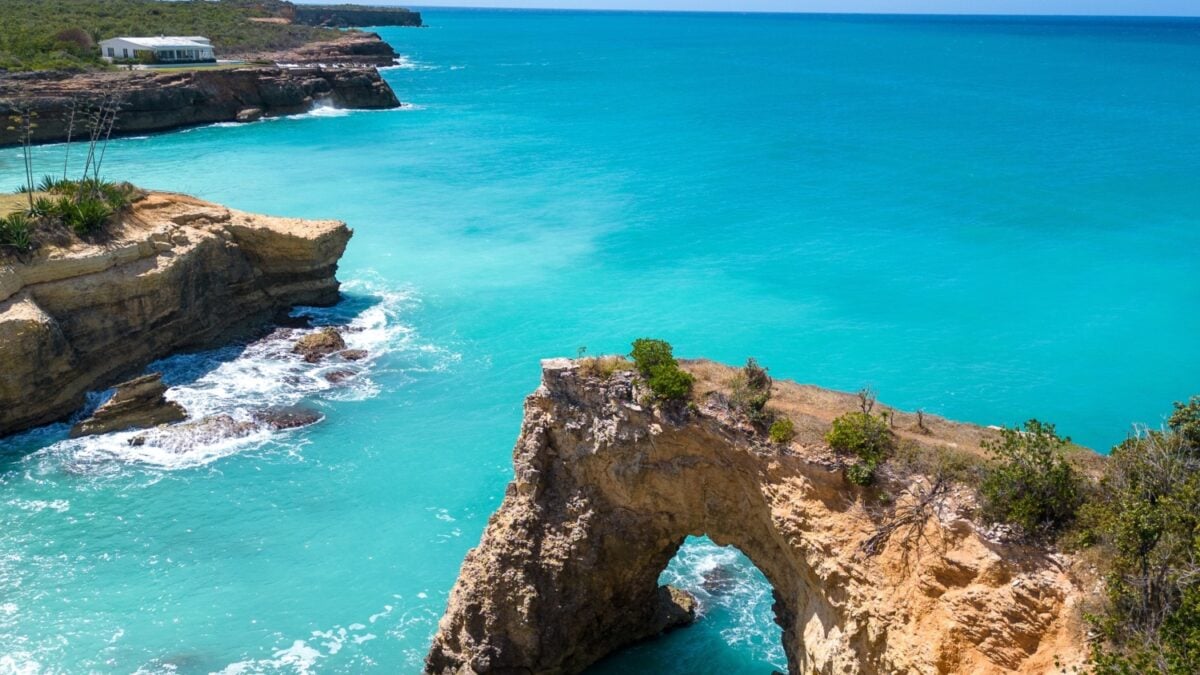The beaches of this British overseas territory are usually its biggest draw.
Tourists flock here for soft sand, turquoise seas, and the sense of seclusion found on an island with just 16,000 residents. But in the age of artificial intelligence, Anguilla’s most valuable asset may be two letters that make up its internet domain: .ai.
Back in the 1980s, when the internet was still taking shape, countries and territories were each assigned their own suffix, such as.us for the United States, .uk for Britain. Anguilla’s .ai designation seemed unremarkable at the time.
But as artificial intelligence has exploded into the mainstream, demand for web addresses has turned this tiny Caribbean island into an unlikely digital landlord.
A revenue game-changer
In 2024, the territory collected approximately $39 million in domain registration and renewal fees, nearly 25% of its total government revenue, the AP reports. That windfall is giving Anguilla much-needed economic diversification, especially as tourism remains vulnerable to storms and seasonal fluctuations.
That figure is expected to climb to $49 million this year, according to government budget projections. Tourism still accounts for the largest share of income, according to the International Monetary Fund. Still, the island’s leaders view domain sales as a crucial means to diversify and cushion the economy from the hurricanes that sweep across the North Atlantic each fall.
The frenzy is real. Earlier this year, HubSpot co-founder Dharmesh Shah reportedly spent $700,000 to acquire you.ai. Other names have fetched six-figure sums at auction: cloud.ai sold for $600,000 in July, while law.ai changed hands for $350,000. More than 850,000 .ai domains are now registered, up from fewer than 50,000 just five years ago.
“If I don’t have immediate plans for it, and there’s another entrepreneur that wants to do something with the name,” Shah told the BBC. “Having said that, I still think over the long-term, .com domains will maintain their value better and for longer.”
Planning for the long-term
To handle the boom, Anguilla signed a five-year deal with U.S. registry firm Identity Digital in 2024. The company now manages the infrastructure and hosts domains on its global servers, insulating them from local risks such as power outages or hurricanes.
The government still collects the bulk of sales revenue, while Identity Digital takes a reported 10% cut.
The United Kingdom, which provides financial and security assistance to Anguilla, has cheered the arrangement. After Hurricane Irma devastated the island in 2017, London provided about £60 million in aid to rebuild. Officials now say domain revenues could strengthen the island’s fiscal self-sufficiency.
For Anguilla, the stakes are high.
Tourism has delivered record arrivals in recent years, but the sector remains vulnerable to climate shocks. Economists at the International Monetary Fund have praised the island’s efforts to channel domain windfalls into infrastructure and health care, as well as a long-discussed plan to expand its airport to better handle luxury travel.
This has happened before
There are precedents for small nations monetizing internet real estate. Tuvalu, a Pacific island nation of 11,000 people, licensed its .tv domain in the late 1990s for just a few million dollars a year, a sum that later looked paltry as streaming exploded.
Anguilla has chosen a revenue-sharing model instead, betting that its cut of each new registration will yield larger returns as artificial intelligence reshapes the digital economy.
For local residents, the .ai boom has yet to change daily life. But policymakers view it as a chance to future-proof the island against external shocks.
“You can’t predict how long this is going to last,” Premier Ellis Webster told the AP. “And so I don’t want to have our economy and our country and all our programs just based on this. And then all of a sudden there’s a new fad comes up in the next year or two, and then we are left now having to make significant expenditure cuts, removing programs.”

